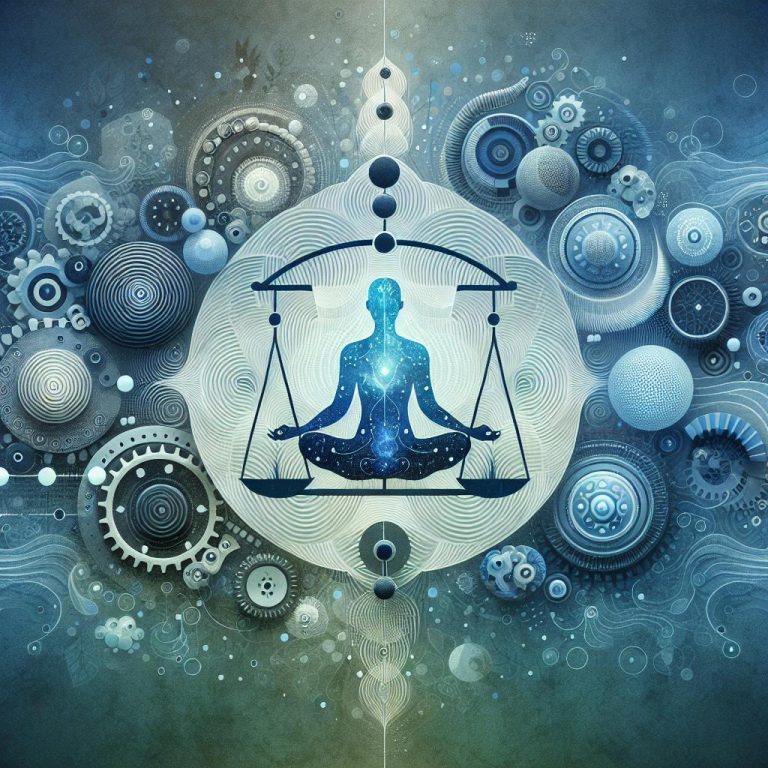How Does Meditation Bring Balance to Your Emotional Life?
Meditation has emerged as a powerful tool for mental and emotional well-being. With our fast-paced lives inundated with stressors, many individuals find themselves struggling with emotional disturbances, anxiety, and overwhelming feelings. But, how does meditation bring balance to your emotional life? In this article, we will uncover the mechanisms through wich meditation enhances emotional resilience, discuss the benefits, and provide practical tips to integrate meditation into your daily routine.
The Science Behind Meditation and Emotional balance
To understand how meditation helps achieve emotional balance, let’s delve into the science that supports its effectiveness:
- Reduces Stress: Meditation activates the body’s relaxation response, reducing the levels of stress hormones like cortisol.
- Enhances Emotional Regulation: Regular practice increases the gray matter density in the prefrontal cortex, which is associated with emotional regulation.
- Improves Mindfulness: Mindfulness meditation trains individuals to focus on the present moment,fostering a non-judgmental awareness of thoughts and emotions.
- Boosts Positive Emotions: It encourages the release of neurotransmitters such as serotonin and dopamine, enhancing feelings of happiness and well-being.
Benefits of Meditation for Emotional Life
Incorporating meditation into your life can lead to a multitude of emotional benefits:
1. Enhanced Self-Awareness
meditation fosters a deeper connection to your thoughts and feelings. this enhanced self-awareness allows you to recognize emotional triggers and address them proactively.
2. Improved Focus and Concentration
Meditation improves cognitive functions, allowing for better focus, which can alleviate feelings associated with cognitive overload or distraction.
3. Greater Emotional Resilience
Through meditation, individuals develop resilience, enabling them to bounce back from setbacks and challenges with a more balanced emotional perspective.
4. Decreased Anxiety and Depression
Regular meditation practice has been shown to decrease symptoms of anxiety and depression, creating a more stable emotional environment.
5. better Relationships
Mindfulness fosters empathy and compassion, allowing individuals to maintain healthier relationships through improved interaction and understanding.
Real-World Case Studies
Many individuals have shared their experiences in using meditation as a tool for achieving emotional balance:
- Jessica’s Journey: A busy corporate executive,Jessica found herself overwhelmed by stress. After committing to a daily meditation practice, she reported a significant decrease in her anxiety levels and improved interactions with her colleagues.
- Mark’s Transformation: diagnosed with depression, Mark turned to meditation as part of his treatment plan. Over time, he noticed not only a reduction in depressive episodes but also an increased capacity to manage his emotions effectively.
Practical Tips to Get Started with Meditation
If you’re ready to bring balance to your emotional life through meditation, here are some practical tips to help you get started:
1. Create a Dedicated Space
Designate a quiet, comfortable spot in your home where you can meditate without distractions. Ensure it’s free from noise and clutter.
2.Start Small
begin with just five to ten minutes of meditation each day. Gradually increase the duration as you become more comfortable with the practice.
3. Explore different Techniques
Experiment with various forms of meditation, such as mindfulness meditation, guided imagery, or loving-kindness meditation, to find the one that resonates with you.
4. Be Consistent
Regular practice is key. try to meditate at the same time each day to establish a routine that fits your lifestyle.
5. Use Technology
Consider utilizing meditation apps like Headspace or Calm, which offer guided sessions and tools for tracking your meditation journey.
Personal Experiences: First-hand Reflections
Many find that meditation changes their perspectives profoundly. Here, we share a few first-hand reflections from meditation practitioners:
Sarah: ”Meditation helped me confront my old emotional baggage.I never realized how much it weighed me down until I started letting go through mindfulness.”
Tom: “A friend recommended meditation when I was struggling with anger. It taught me to pause and reflect before reacting, ultimately saving my relationships.”
Conclusion
Meditation is a transformative practice that not only calms the mind but also nurtures emotional balance. By fostering self-awareness, resilience, and improved relationships, it paves the way for a more harmonious emotional life. whether you are a beginner or experienced practitioner, incorporating meditation into your daily routine can offer profound benefits for your emotional health. So, take a moment today to reflect, breathe, and embark on this journey toward emotional balance.











